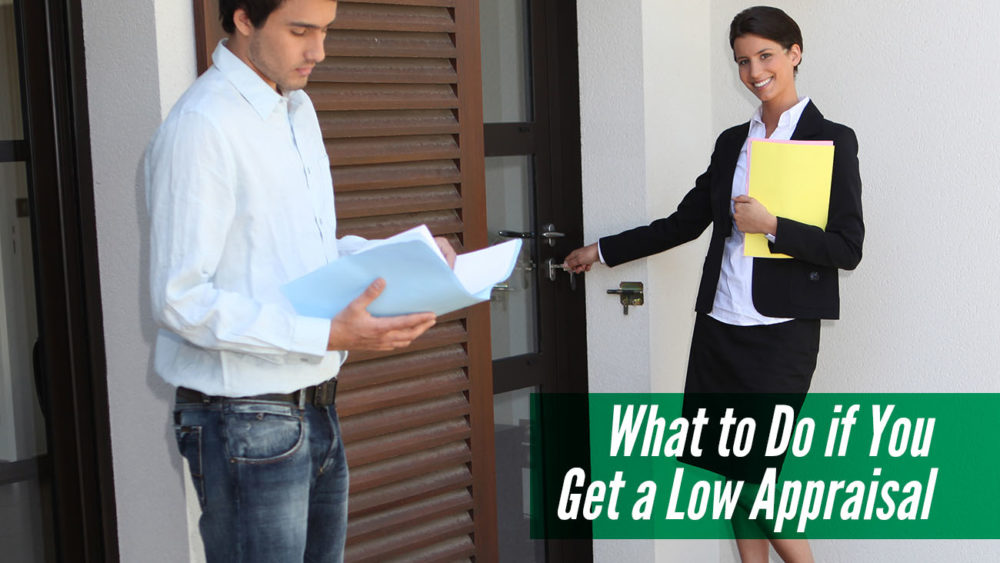Low Appraisal
An appraisal is an estimation of a home’s value. But what happens when an appraisal comes in under the home’s selling price? Here’s how to deal with a low appraisal.
Why do low appraisals happen?
The first thing you must ask yourself is why the home appraised for less than the home’s sale price. There are a number of reasons why this may occur. Some of the most common are:
- Declining market values due to fewer buyers and a larger inventory of homes
- Incorrect evaluation by the underwriter
- Overpricing by the seller
- Fallout from a lot of foreclosures and/or short sales in the neighborhood
- Inexperienced appraiser who doesn’t understand local influence on value
- Artificially inflated prices, resulting from multiple offers
Solutions for low appraisals
After you figure out why your appraisal may have been lower than expected, it’s time to think of ways to solve your problem.
-
The seller can lower the price
If the home was overpriced, the seller can lower the price. This is often the best solution to a low appraisal problem. It’s an easy way to satisfy both the buyer and the lender. The seller doesn’t need to lower the price. However, there is no guarantee the new buyer’s lender will appraise the home higher than the first buyer. Additionally, the seller will have to go through the trouble to sell the property again, which can be time-consuming and expensive.
-
Buyers can make up the difference
A low appraisal does not mean that a lender won’t lend to a buyer. The lender will just lend based on the agreed-upon ratio in the contract at the appraised value. Buyers can make up the difference in a cash payment. In some cases, the lender will not allow the buyer to give cash for the difference. In this event, the lender will have the buyer pay part of the seller’s closing costs.
-
Sellers can offer a second mortgage
If the buyer cannot come up with the money to pay off the difference, the seller can offer to take out a second mortgage, which the buyer will pay back in smaller payments or in one lump sum at a later date.
-
Ask for a list of comps
Ask agents involved to put a list together including recent comparable sales in the area at the agreed-to sale price. Once you have the list together, submit it to the underwriter and ask for a review of the appraisal. Try to get comps that are similar to the property in question.
-
Order a second appraisal
If your loan in an FHA loan, you can ask your lender for a list of approved appraisers. Either the seller or buyer can pay for the second appraisal. The second appraisal may come in higher than the first, especially if the first appraiser was inexperienced. If your loan is a conventional loan, the second appraisal is subject to the rules of the Home Valuation Code of Conduct.


Comments are closed.